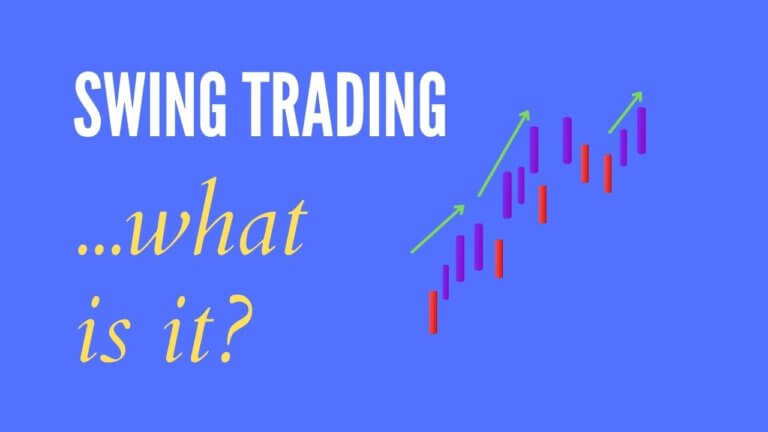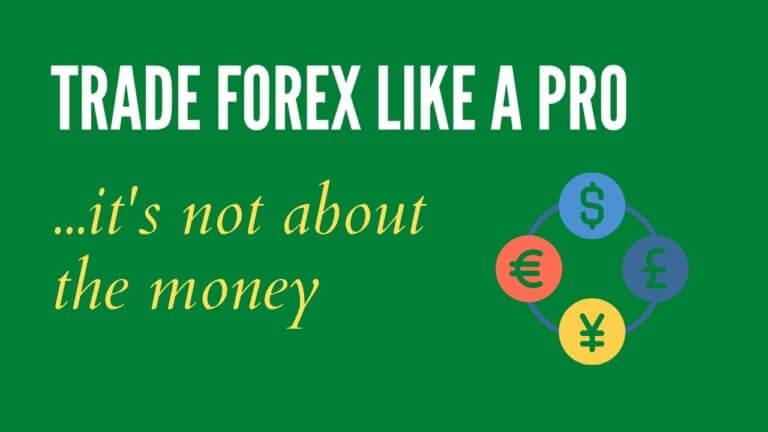How To Succeed At Trading—What The Best Traders Say (And Others Don’t Tell You)
Essential advice for trading success.
Please Note: Trading financial instruments, including forex, is risky—please read our risk disclaimer
Are you an aspiring trader?
Be it in stocks, forex, crypto, or commodities?
If you are, you may have already heard plenty of advice from countless traders, promoters, “gurus”, and brokers through their blogs, websites, or YouTube channels.
Unfortunately, most of this advice is probably worth very little, although some of it might indeed be good.
In this article, we’ll look at some genuine advice from real, successful traders and others who are dedicated to helping traders succeed.
It’s sourced from interviews conducted by Etienne Crete—a successful full-time trader himself—who has traveled the world (both physically and virtually) to meet with the best minds in trading.
What you learn from this article can be a game-changer—it comes from years of experience and first-hand knowledge about what it takes to succeed in trading.
Let’s hear what the following eight veterans think are essential for success in trading.
Contents
- Jack Schwager
- Richard Jackson
- Gil Ben Hur
- Raghee Horner
- Rob Colville
- Mike Bellafiore
- Mandi Pour Rafsendjani
- Khaled Maziad
- Conclusion
Jack Schwager
You don’t want to get knocked out of the game
Jack Schwager
Jack Schwager is a familiar name to many traders.
He is perhaps best known for his classic book, Market Wizards, in which he interviews and distills the knowledge of the world’s most successful traders. First published in 1989, it’s considered a must-read amongst aspiring traders to this day.
Schwager went on to publish several other books exploring trading success—including The New Market Wizards and Stock Market Wizards—all of which are celebrated for their wisdom and practical advice.
In Schwager’s view, risk management is key.
You should avoid ever losing more than 20% of your trading capital—and preferably less than 10%—if you want to have longevity as a trader.
There will always be opportunities in the financial markets, says Schwager, and although they’re constantly changing, the markets will always be there.
Don’t let a few mistakes knock you out of the game.
Richard Jackson
Don’t expect the good trades to be there all the time
Richard Jackson
Richard Jackson is a professional trader with twenty years of experience in proprietary trading, education, and developing quantitative trading strategies.
He heads up Jackson Capital—a Melbourne-based trading and investment firm—and continues to mentor and develop aspiring proprietary traders.
What’s one of the most important things that a trader should have according to Jackson?
Patience.
Profitable trades won’t always be available. The market chops and changes regularly and there’s nothing that a trader can do about it.
Accepting this—being humble in the face of the market—can be one of the most important skills a trader can learn.
“Don’t expect the good trades to be there all the time”, says Jackson. Be patient, and trade when you ought to. Not before.
And patience is at the heart of Jackson’s favorite inspirational trading quote:
“Trade what you see, not what you think”
Larry Pesavento
If the market doesn’t present the right conditions for your trading system—if you don’t see it—then don’t trade it.
Just thinking your system will work, even when the conditions aren’t right, is a recipe for loss.
Gil Ben Hur
They don’t use the whole margin that we give them
Gil Ben Hur
Gil Ben Hur is a successful trader with a background in advertising and the arts. Having explored careers in both copywriting and film production, Hur’s journey towards trading has been a creative one.
Other than trading, Hur also has a keen interest in business management—he had a stint at running his own film production company—so it’s not surprising that after finding success in trading, Hur gravitated towards setting up a trading firm, the 5%ers.
The 5%ers was co-founded by Hur in 2016 alongside another successful forex trader, Snir Ahiel.
It is a proprietary trading firm that funds aspiring forex traders who want to manage other peoples’ money.
The 5%ers has enjoyed growing popularity over recent years and is named after the commonly held belief that only around 5% of traders become consistently profitable.
In Hur’s experience, successful traders are the ones that “don’t use the whole margin” that they’re given to trade with. Traders tempted to go “all-in” or “full gas” with a single trade, and “stepping on the pedal”, are the ones who don’t succeed.
Like Jackson, Hur highlights patience as a virtue in trading.
Those traders who know how to “collect pips” along the way, in a step-by-step manner, will be more successful than others in Hur’s view.
In contrast, impatient traders who use the maximum leverage that they’re allowed are the ones who tend to get “busted”.
Knowing that trading is a long-term game, says Hur, is the key to being successful.
Raghee Horner
We are paid for our results
Raghee Horner
Raghee Horner heads up the futures trading division of Simpler Trading, a trading education and mentorship firm, and has over three decades of trading success to draw from.
Horner trades across a variety of asset classes—stocks, futures, commodities, and currencies—and she believes that it’s important for traders to be able to move between asset classes.
This kind of adaptability has been a hallmark of Raghee’s career, and it’s a trait that she advocates for any trader.
“A little bit of macro understanding and technical analysis”, says Horner, can allow any trader to move from one market to another.
Ultimately, Horner emphasizes that what separates successful traders from others is an entrepreneurial mindset—it’s the outcomes you achieve that define success.
And how do you improve your outcomes in trading?
Spend time practicing trading.
Analysis and preparation are important, but time spent actually trading will have an important impact on your profits, says Horner.
Rob Colville
There’s a disproportionate relationship between time and money
Rob Colville
Rob Colville has achieved success by trading longer timeframes—daily or weekly charts—and he is a champion of what he refers to as “lifestyle trading”. He founded the trading education firm The Lazy Trader to promote this style of trading.
Colville’s approach is based on an interesting observation amongst many traders—the less time they spend trading, the better they do.
What does he mean by this? Isn’t time spent practicing, preparing, and analyzing trades a good thing?
Yes. And no.
Colville is referring to the fact that, once a trader knows their craft, they don’t need to sit in front of trading screens for long sessions in order to trade effectively.
Some seasoned traders do like to spend time in front of the charts—this is ok, and it’s a personal preference, provided they have discipline and know what they’re doing—but novice traders tend to unnecessarily meddle with their trading systems by over-analyzing and over-observing their charts.
The key is to trust your trading system—once you know it works, of course—and don’t do unnecessary trades.
This is one of the reasons why Colville prefers to trade daily charts—you can set your trades and then walk away for the day.
And the profits can be similar, in Colville’s view, between shorter and longer timeframes in trading. But in terms of profits-per-unit-time spent, longer timeframes offer a much better return on trading effort.
Mike Bellafiore
Grow or die
Mike Bellafiore
Mike Bellafiore is the co-founder of SMB Capital, a proprietary trading firm in NYC. He has trained some of the world’s best traders and is also the author of the widely acclaimed trading book One Good Trade.
Bellafiore’s ominous-sounding advice is based on the idea of continuous improvement in trading—complacency can be the killer of a trading career.
It’s always good to have trading success, but a good trader will always think about getting better.
This is especially important given the nature of financial markets—they’re continually evolving and surprising traders. If a trader isn’t willing to grow, their success will likely not last.
Mandi Pour Rafsendjani
Do something that makes you happy before you get to the trading screen
Mandi Pour Rafsendjani
Mandi Pour Rafsendjani is a highly regarded trading performance coach.
Having been a successful trader, Rafsendjani turned her expertise towards trading psychology. She now assists traders at all levels improve their craft through seminars, training, and coaching.
Rafsendjani highlights the importance of your state of mind when approaching trading—if you’re unhappy or agitated, then this will show in your trading.
Your trading mindset will affect your results.
Rafsendjani suggests that it’s good to start with “completely accepting where you’re at” and being “honest with yourself” as a trader.
Whether you’re good or bad as a trader, or even as a human being, understand that none of us are perfect and we all have degrees of competence in what we do.
This way of thinking can create an environment in which your mind reveals your weaknesses and strengths as a trader, and serves as a good foundation for building and improving your trading skills.
Khaled Maziad
Success needs maintenance
Khaled Maziad
Khaled Maziad is an engineer who turned to trading and achieved success. He now assists other traders through coaching and mentoring, emphasizing the importance of emotions in trading.
“Think like a scientist“, suggests Maziad, and always be willing to experiment and “listen” to what’s happening with your trading.
There’s a feedback loop in trading, and you should always be assessing it.
It’s inevitable that your desired outcomes and actual outcomes often won’t match. When this happens, either your execution needs adjustment or your trading process itself needs adjustment.
It’s simple, but difficult, at the same time.
Having an open mind to learning about your trading in this way, through ongoing feedback, is crucial for success according to Maziad.
There are many trading approaches that can work, but they may suit different markets, timeframes, and trading personalities.
Through feedback, you can assess what works for which situation. This is the maintenance that trading success needs, says Maziad.
And the better you can get at this, the better will be your trading.
Conclusion
If you’re an aspiring trader, it’s easy to be confused by the abundant—and mostly misleading—information about trading success available through social media and online channels.
It’s better to heed advice from those who’ve already achieved success, and who’ve helped others achieve success as well.
In this article, we hear from expert traders and educators who offer genuine advice on what it takes to succeed in trading.
Patience, and waiting for the right time to trade, is an important aspect of successful trading.
As is risk management, so that you’ll never lose too much of your trading capital during bad times. This can set you up for trading as a long-term game, rather than merely for short-lived results.
It’s also important to have a trading system that you can trust, and then let the system play out to its strengths. Don’t meddle or trade unnecessarily in between.
And how do you develop a good system?
Research and analysis, of course, but especially practice. Spend time actually trading in order to learn your systems, understand how they work, and hone your trading skills.
But this isn’t enough. Commit to continuous improvement in your trading approach, and learn through feedback as you assess your trades.
And throughout your whole trading journey, your mindset is the silent platform that can carry you towards better results—try to have a happy state of mind when you’re trading.
If you take away these few key points as you pursue your trading goals, and actually put them into practice as you trade, then chances are your trading success will only be a matter of time.
Giri Rabindranath is a CFA Charterholder and holds a Master’s degree in Finance. He has over 25 years of professional experience in the financial industry. The views expressed in this article are solely for informational purposes and do not represent financial advice in any way whatsoever.
Risk Disclaimer: Trading CFDs, forex, and other financial instruments, especially if leveraged, is risky. It isn’t suitable for everyone and may result in loss, sometimes substantially more than the initial investment. Depending on the type of instrument, you may not own or have rights to the underlying assets. Past performance is no indication of future performance and tax laws are subject to individual circumstances and are also subject to change at any time. The information on this website is general in nature and doesn’t take into account your personal objectives, financial circumstances, or needs.





